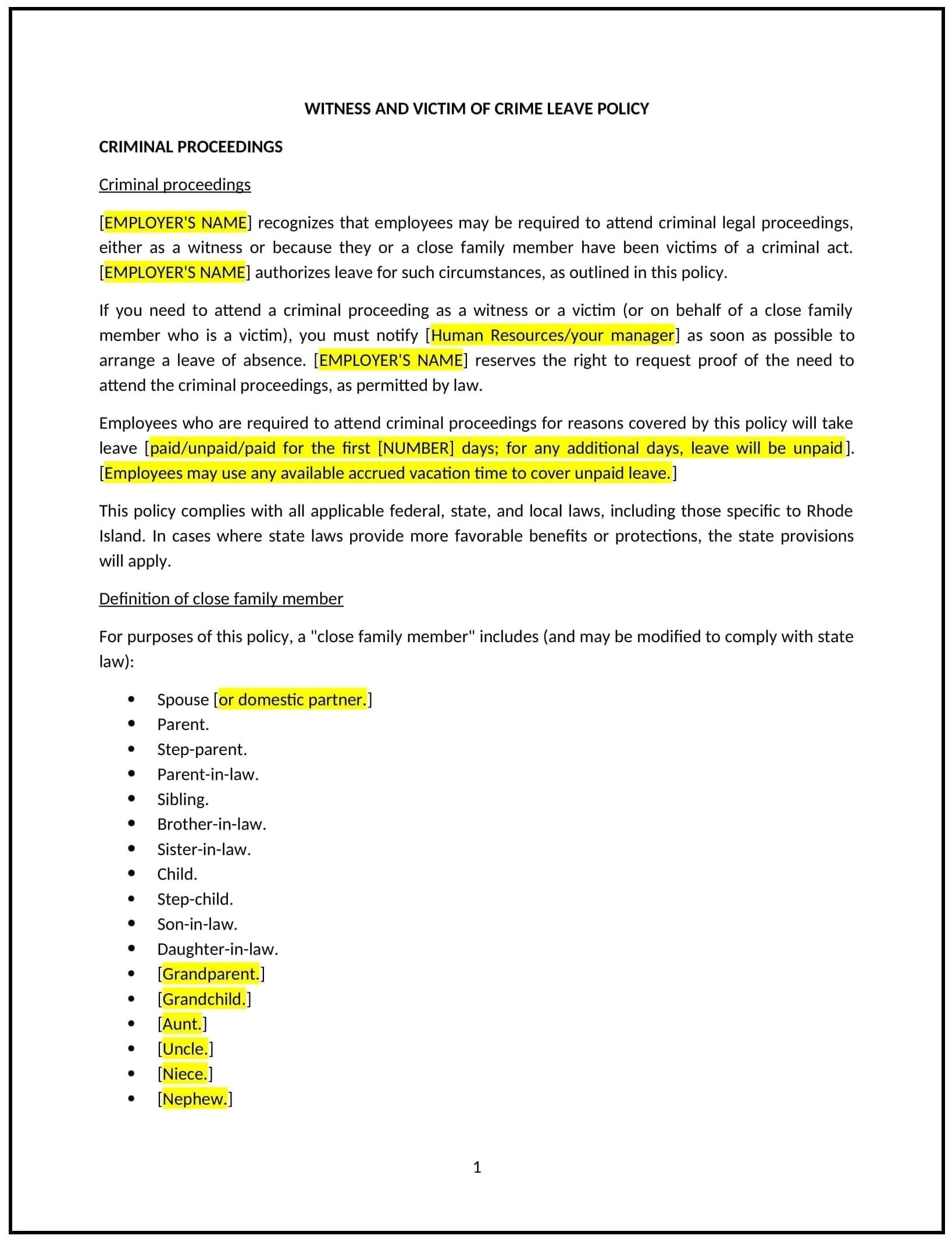Witness and victim of crime leave policy (Rhode Island): Free template
Got contracts to review? While you're here for policies, let Cobrief make contract review effortless—start your free review now.

Customize this template for free
Witness and victim of crime leave policy (Rhode Island)
This witness and victim of crime leave policy helps Rhode Island businesses provide employees with necessary leave when they are required to participate in legal proceedings as witnesses or victims of a crime. It supports compliance with Rhode Island’s laws, promotes workplace understanding, and ensures employees feel supported during legal obligations.
By implementing this policy, businesses can improve employee trust, accommodate legal responsibilities, and maintain a respectful work environment.
How to use this witness and victim of crime leave policy (Rhode Island)
- Inform employees of their rights: Clearly communicate employees’ entitlement to leave under Rhode Island law.
- Define notice requirements: Specify how and when employees must notify their employer about the need for leave.
- Establish documentation guidelines: Outline acceptable forms of proof for leave, such as court summons or legal notices.
- Include confidentiality protections: Assure employees that their reasons for leave will remain private.
- Set return-to-work procedures: Describe how employees can resume work after their leave.
- Train managers: Ensure supervisors understand their roles in implementing and respecting this policy.
- Review legal changes: Regularly update the policy to reflect changes in Rhode Island laws.
Benefits of using this witness and victim of crime leave policy (Rhode Island)
- Supports compliance with Rhode Island law: Aligns with legal obligations to provide leave for witnesses and victims.
- Promotes workplace fairness: Demonstrates the business’s commitment to supporting employees in difficult times.
- Enhances employee trust: Fosters an environment where employees feel respected and valued.
- Reduces legal risks: Minimizes potential disputes related to leave policies.
- Strengthens organizational culture: Encourages understanding and empathy among employees.
Tips for using this witness and victim of crime leave policy (Rhode Island)
- Educate employees about their rights under this policy during onboarding.
- Maintain confidentiality when handling employee leave requests.
- Keep clear records of leave requests and documentation to ensure consistency.
- Consult legal counsel to ensure the policy remains compliant with Rhode Island law.
- Provide additional support, such as referrals to counseling services, if needed.